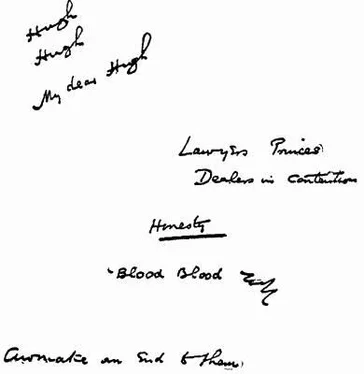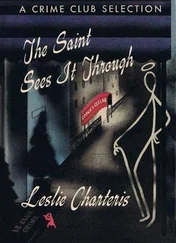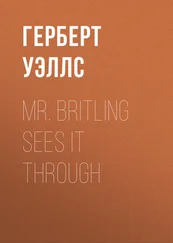Herbert Wells - Mr. Britling Sees It Through
Здесь есть возможность читать онлайн «Herbert Wells - Mr. Britling Sees It Through» весь текст электронной книги совершенно бесплатно (целиком полную версию без сокращений). В некоторых случаях можно слушать аудио, скачать через торрент в формате fb2 и присутствует краткое содержание. Жанр: Классическая проза, на английском языке. Описание произведения, (предисловие) а так же отзывы посетителей доступны на портале библиотеки ЛибКат.
- Название:Mr. Britling Sees It Through
- Автор:
- Жанр:
- Год:неизвестен
- ISBN:нет данных
- Рейтинг книги:4 / 5. Голосов: 1
-
Избранное:Добавить в избранное
- Отзывы:
-
Ваша оценка:
- 80
- 1
- 2
- 3
- 4
- 5
Mr. Britling Sees It Through: краткое содержание, описание и аннотация
Предлагаем к чтению аннотацию, описание, краткое содержание или предисловие (зависит от того, что написал сам автор книги «Mr. Britling Sees It Through»). Если вы не нашли необходимую информацию о книге — напишите в комментариях, мы постараемся отыскать её.
Mr. Britling Sees It Through — читать онлайн бесплатно полную книгу (весь текст) целиком
Ниже представлен текст книги, разбитый по страницам. Система сохранения места последней прочитанной страницы, позволяет с удобством читать онлайн бесплатно книгу «Mr. Britling Sees It Through», без необходимости каждый раз заново искать на чём Вы остановились. Поставьте закладку, и сможете в любой момент перейти на страницу, на которой закончили чтение.
Интервал:
Закладка:
While writing this Mr. Britling had been struck by the thought of the photographs, and he had taken them out of the little drawer into which he was accustomed to thrust them. He picked out the ones that showed the young German, but there were others, bright with sunshine, that were now charged with acquired significances; there were two showing the children and Teddy and Hugh and Cissie and Letty doing the goose step, and there was one of Mr. Van der Pant, smiling at the front door, in Heinrich's abandoned slippers. There were endless pictures of Teddy also. It is the happy instinct of the Kodak to refuse those days that are overcast, and the photographic record of a life is a chain of all its kindlier aspects. In the drawer above these snapshots there were Hugh's letters and a miscellany of trivial documents touching on his life.
Mr. Britling discontinued writing and turned these papers over and mused. Heinrich's letters and postcards had got in among them, and so had a letter of Teddy's....
The letters reinforced the photographs in their reminder how kind and pleasant a race mankind can be. Until the wild asses of nationalism came kicking and slaying amidst them, until suspicion and jostling greed and malignity poison their minds, until the fools with the high explosives blow that elemental goodness into shrieks of hate and splashes of blood. How kindly men are—up to the very instant of their cruelties! His mind teemed suddenly with little anecdotes and histories of the goodwill of men breaking through the ill-will of war, of the mutual help of sorely wounded Germans and English lying together in the mud and darkness between the trenches, of the fellowship of captors and prisoners, of the Saxons at Christmas fraternising with the English.... Of that he had seen photographs in one of the daily papers....
His mind came back presently from these wanderings to the task before him.
He tried to picture these Heinrich parents. He supposed they were kindly, civilised people. It was manifest the youngster had come to him from a well-ordered and gentle-spirited home. But he imagined them—he could not tell why—as people much older than himself. Perhaps young Heinrich had on some occasion said they were old people—he could not remember. And he had a curious impulse too to write to them in phrases of consolation; as if their loss was more pitiable than his own. He doubted whether they had the consolation of his sanguine temperament, whether they could resort as readily as he could to his faith, whether in Pomerania there was the same consoling possibility of an essay on the Better Government of the World. He did not think this very clearly, but that was what was at the back of his mind. He went on writing.
If you think that these two boys have both perished, not in some noble common cause but one against the other in a struggle of dynasties and boundaries and trade routes and tyrannous ascendancies, then it seems to me that you must feel as I feel that this war is the most tragic and dreadful thing that has ever happened to mankind.
He sat thinking for some minutes after he had written that, and when presently he resumed his writing, a fresh strain of thought was traceable even in his opening sentence.
If you count dead and wounds this is the most dreadful war in history; for you as for me, it has been almost the extremity of personal tragedy.... Black sorrow.... But is it the most dreadful war?
I do not think it is. I can write to you and tell you that I do indeed believe that our two sons have died not altogether in vain. Our pain and anguish may not be wasted—may be necessary. Indeed they may be necessary. Here am I bereaved and wretched—and I hope. Never was the fabric of war so black; that I admit. But never was the black fabric of war so threadbare. At a thousand points the light is shining through.
Mr. Britling's pen stopped.
There was perfect stillness in the study bedroom.
"The tinpot style," said Mr. Britling at last in a voice of extreme bitterness.
He fell into an extraordinary quarrel with his style. He forgot about those Pomeranian parents altogether in his exasperation at his own inexpressiveness, at his incomplete control of these rebel words and phrases that came trailing each its own associations and suggestions to hamper his purpose with it. He read over the offending sentence.
"The point is that it is true," he whispered. "It is exactly what I want to say."...
Exactly?...
His mind stuck on that "exactly."... When one has much to say style is troublesome. It is as if one fussed with one's uniform before a battle.... But that is just what one ought to do before a battle.... One ought to have everything in order....
He took a fresh sheet and made three trial beginnings.
"War is like a black fabric." ...
"War is a curtain of black fabric across the pathway."
"War is a curtain of dense black fabric across all the hopes and kindliness of mankind. Yet always it has let through some gleams of light, and now—I am not dreaming—it grows threadbare, and here and there and at a thousand points the light is breaking through. We owe it to all these dear youths—"
His pen stopped again.
"I must work on a rough draft," said Mr. Britling.
§ 5
Three hours later Mr. Britling was working by daylight, though his study lamp was still burning, and his letter to old Heinrich was still no better than a collection of material for a letter. But the material was falling roughly into shape, and Mr. Britling's intentions were finding themselves. It was clear to him now that he was no longer writing as his limited personal self to those two personal selves grieving, in the old, large, high-walled, steep-roofed household amidst pine woods, of which Heinrich had once shown him a picture. He knew them too little for any such personal address. He was writing, he perceived, not as Mr. Britling but as an Englishman—that was all he could be to them—and he was writing to them as Germans; he could apprehend them as nothing more. He was just England bereaved to Germany bereaved....
He was no longer writing to the particular parents of one particular boy, but to all that mass of suffering, regret, bitterness and fatigue that lay behind the veil of the "front." Slowly, steadily, the manhood of Germany was being wiped out. As he sat there in the stillness he could think that at least two million men of the Central Powers were dead, and an equal number maimed and disabled. Compared with that our British losses, immense and universal as they were by the standard of any previous experience, were still slight; our larger armies had still to suffer, and we had lost irrevocably not very much more than a quarter of a million. But the tragedy gathered against us. We knew enough already to know what must be the reality of the German homes to which those dead men would nevermore return....
If England had still the longer account to pay, the French had paid already nearly to the limits of endurance. They must have lost well over a million of their mankind, and still they bled and bled. Russia too in the East had paid far more than man for man in this vast swapping off of lives. In a little while no Censorship would hold the voice of the peoples. There would be no more talk of honour and annexations, hegemonies and trade routes, but only Europe lamenting for her dead....
The Germany to which he wrote would be a nation of widows and children, rather pinched boys and girls, crippled men, old men, deprived men, men who had lost brothers and cousins and friends and ambitions. No triumph now on land or sea could save Germany from becoming that. France too would be that, Russia, and lastly Britain, each in their degree. Before the war there had been no Germany to which an Englishman could appeal; Germany had been a threat, a menace, a terrible trampling of armed men. It was as little possible then to think of talking to Germany as it would have been to have stopped the Kaiser in mid career in his hooting car down the Unter den Linden and demand a quiet talk with him. But the Germany that had watched those rushes with a slightly doubting pride had her eyes now full of tears and blood. She had believed, she had obeyed, and no real victory had come. Still she fought on, bleeding, agonising, wasting her substance and the substance of the whole world, to no conceivable end but exhaustion, so capable she was, so devoted, so proud and utterly foolish. And the mind of Germany, whatever it was before the war, would now be something residual, something left over and sitting beside a reading-lamp as he was sitting beside a reading-lamp, thinking, sorrowing, counting the cost, looking into the dark future....
Читать дальшеИнтервал:
Закладка:
Похожие книги на «Mr. Britling Sees It Through»
Представляем Вашему вниманию похожие книги на «Mr. Britling Sees It Through» списком для выбора. Мы отобрали схожую по названию и смыслу литературу в надежде предоставить читателям больше вариантов отыскать новые, интересные, ещё непрочитанные произведения.
Обсуждение, отзывы о книге «Mr. Britling Sees It Through» и просто собственные мнения читателей. Оставьте ваши комментарии, напишите, что Вы думаете о произведении, его смысле или главных героях. Укажите что конкретно понравилось, а что нет, и почему Вы так считаете.






